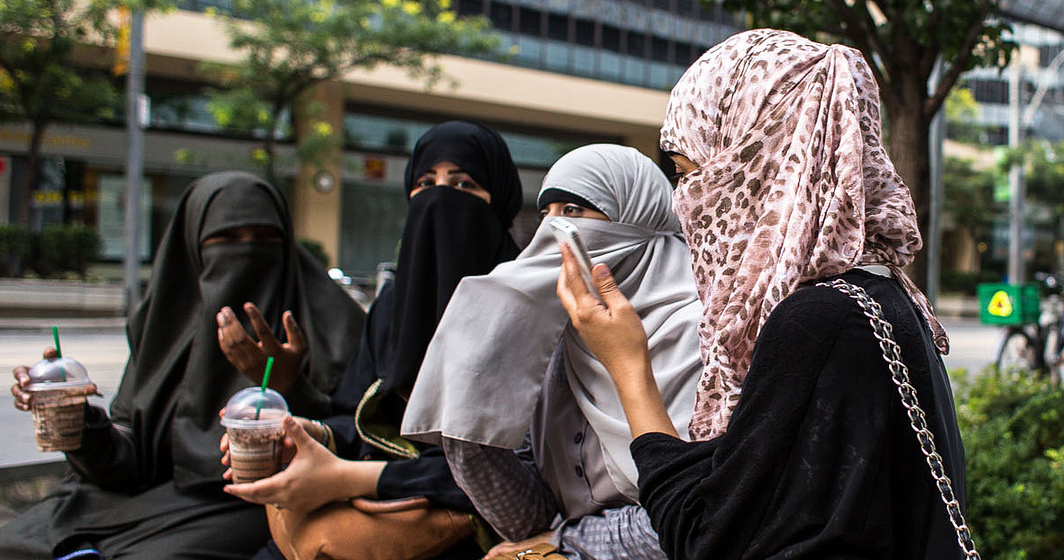O Canada, our home and native land…except if you’re a Muslim woman who wears a hijab and niqab.
On Tuesday, Prime Minister Stephen Harper stood up in parliament and stated that the practice of covering one’s face with a niqab is contrary to Canadian values and “rooted in a culture that is anti-women.” It was a response to refute claims made by Justin Trudeau that Harper was unnecessarily antagonizing the Muslim community in Canada and propagating Islamaphobia.
Clearly, Harper didn’t succeed.
First, what is this “culture that is anti-women”? Is it the same culture in which religious teachings instruct you to revere your mothers and protect your daughters? Is it the same culture whose holy book decreed a little more than 1400 years ago that “Whatever men earn, they have a share of that and whatever women earn, they have a share in that” (Quran 4:32), while women in Canada were only declared “persons” under Canadian law in 1929.Or is it the same culture whose last Prophet repeatedly emphasized in his last sermon “to treat…women well and be kind to them for they are your partners and committed helpers.”
It reads as a stereotype and a generalization, which is not unexpected or surprising. However, coming from the leader of one of the most multicultural countries in the world, it is shocking.
Ideally, and perhaps theoretically, leaders are supposed to be better than their citizens, better in the sense that they’re supposed to serve as the rational and just voice informing and educating the people who gave them their power. Call it naiveté, but one doesn’t expect a leader to be the main voice propagating misinformed stereotypical rhetoric against a minority group.
Take another example. On February 18, 2015, Minister of Citizenship and Immigration Chris Alexander sent out a couple of tweets in response to Harper’s vow to defend the niqab ban during citizenship oath ceremonies and Justin Trudeau’s argument against doing so. His tweet said: “@gmbutts Defending indefensible — a Lib tradition! Niqab, hejab, burqa, wedding veil — face coverings have no place in cit oat-taking!”

The Minister takes issues with “face coverings,” but includes the “hejab, burqa, wedding veil” in the list. The hijab covers hair, the burqa covers the body, and and who knows why a wedding veil fits into this list.
Perhaps the most surprising aspect of all this is the undeniable support Harper is receiving from the other Members of Parliament in the House of Commons. Shame on all the Conservative MPs for rising from their seats and resoundingly applauding to Harper’s comments that the niqab stems from a “culture that is anti-women”.
By supporting Harper’s comments, these supposed “leaders” lose their right to have any authority to serve as moral authorities against any other leader or culture in the world because, unfortunately, they are no better. They are subjecting a minority to unnecessary review by grouping them all into the one image the niqab and the hijab have come to be associated with, and which does not serve as universal truth.
By supporting Harper’s comments, these leaders become that “culture that is anti-women,” because they are disrespecting a Muslim woman’s right to choose the way she wants to dress and her rights to practice her religion freely. It is an authority they neither have nor can they assume.
Sadly, that’s what Harper has been doing for the past few months. His pretence of feminism in the face of a long string of policies, which target only a few women out of many — in one of the largest minorities in the country without any clear justified basis. If it does, his rhetoric is antagonising more than explaining that. It’s time he was held accountable for that.
If I were in a position to give advice to Harper and his government I would say this: Check your facts, meet your people, and get to know them. Hear the voice behind the niqab, and know that she is just as Canadian, if not more, as anyone in the House of Commons.
Fatima Syed is a Master of Journalism Student at Ryerson University. You can follow her at @fatimasyed401



